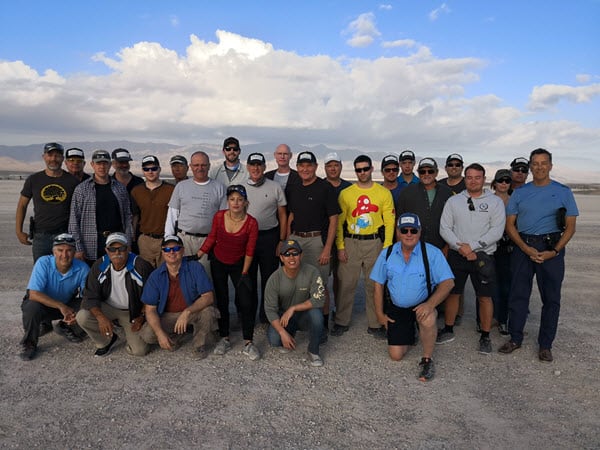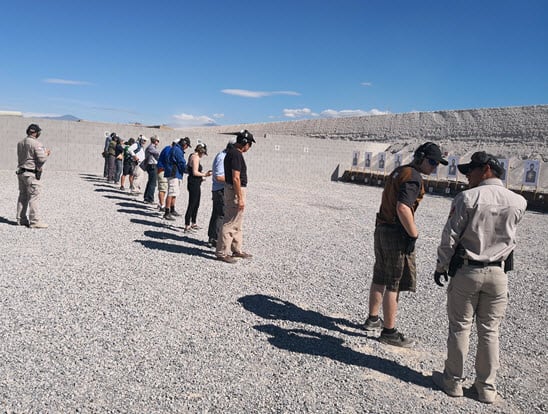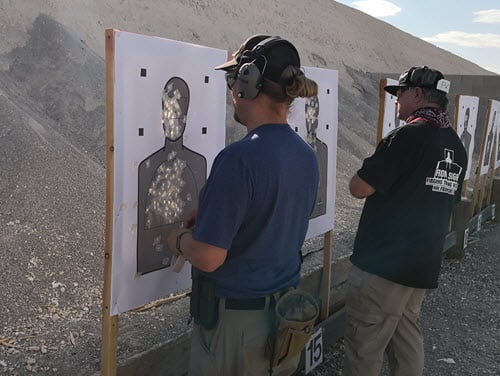We're pleased to announce the first-ever Peak Prosperity Resilience Challenge.
Over an upcoming weekend in January 2019 (specifc dates to be announced soon) participating individuals will turn off their electricity from Friday at 7:00pm to 7:00pm Sunday and subsist entirely off of their existing preparations.
Are you in?
We’ll be seeking community input over the next month as we refine the particulars of this challenge; but the intention is to stress-test everyone’s current in-place emergency plans. So when the weekend arrives, no going out to the store to get new batteries, more firestarter, or a hot coffee.
A number of Peak Prosperity members proposed this idea to us in the wake of Hurricanes Harvey and Florence. During those storms, a lot of folks learned their emergency preps were much less robust than they had initially anticipated.
We agree this challenge is a great idea. Working out kinks and shortcomings during a practice-run like this will increase our odds of persevering through a future emergency.
Which is why we’re picking a cold winter month (for those of you in the northern hemisphere) to really push ourselves out of our comfort zones.
What will you eat? How will you stay sufficiently warm? Will you have to take steps to keep the pipes in your house from freezing? How will you communicate with the outside world? Do you have sufficient nighttime lighting? How will you occupy your time?
The goal here is to identify each of our weak areas while having some fun knowing that we're all going through the experience together. We'll all regroup here online once we turn the electricity back on Sunday night and compare learnings. Trust me, there will be many to share.
The Solution For Anxiety
In our ten years of alerting people to the growing predicaments presented by The Three Es, rooted firmly in the impossibility of attempting to grow infinitely on a finite planet, we’ve discovered something very important about anxiety: it dwells in the gap between what you know and what you do.
For example, if you know you live close to an active earthquake fault but have no safeguards in place, you're going to experience anxiety. Maybe your mind is able to suppress it way down to a background murmur, but there it sits anyways, eating away at your peace of mind and sense of being a responsible adult.
And eventually, it will flare up the next time a swarm of light tremors hits your area, as an urgent reminder that the next big earthquake is not a matter of if, but of when.
Because you cannot ‘unknow’ something, your only course of action to reduce or eliminate such anxiety is to take action and bring your behavior into better alignment with what you know is right.
In our earthquake example, that would mean -- at a minimum -- procuring a 48-hour emergency kit for your home, an emergency contact plan for your family with backup plans and rendezvous points understood by all. You also should have a means of charging your phone and other light electronics without access to the electrical grid, as well as a means of purifying drinking water that doesn’t rely on boiling.
All of that might take you 60 minutes and a few hundred dollars to locate and purchase. But boy, will you feel an immediate sense of inner relief with those basic fundamentals attended to.
Very few families are sufficiently prepared for any sort of emergency or natural disaster. And an even smaller fraction actually run practice tests to ensure their plans will work properly when crisis hits.
So here’s the bottom line: if you're feeling anxious these days, then we invite you to figure out why and do something about it. Close that gap. You’ll feel better.
And if you are feeling anxious, know that you're not alone. There’s a lot to be worried about these days.
Ecosystems are collapsing. The central banks are trying to undo a decade of idiotic money printing. Resource wars are on the horizon. Politics are getting increasingly divisive as the ruling classes seem unable to understand how their policies are harmful to the majority (which opens the doorway to all sorts of would-be demagogues and saviors).
Given the imminence of the end of the exponential economic growth model, an enormous set of obvious questions emerges: What material preparations should you make? Where should you try and store your wealth and in what forms? Where do you want to live? What skills do you need to develop? Do you know your friends and neighbors well enough to rely on them under a variety of potential circumstances?
Once you’ve worked your way through these questions, a deeper set emerges: What’s your role here on earth while you are alive? Who do you want to be? What mark do you want to leave on the world? Are you on track to be a wise elder to the younger generation?
The approaching hornets' nest of crises are truly existential, and therefore evoke a healthy amount of deep questioning, as is right and proper.
The Importance Of Training
To illustrate how stress-testing can dramatically ramp up resilience, increase community bonding, be fun, and be both humbling and inspiring at the same time, let me tell you about our most recent Peak Prosperity skill building event.
Last month, roughly 30 Peak Prosperity members travelled to Pahrump, Nevada for an intensive four-day defensive hand gun training course at Front Sights' incredible facilities. Here's a group photo of all of us:
As good as the ranges were, the staff was even better. All the instructors had extensive, mostly military, experience with firearm safety and proficiency, and were extremely hands-on with each of us:
They drilled the basic steps into us, making us practice them over and over again. Loading and unloading. Drawing and reholstering. Squeezing the trigger and then permitting the trigger finger to only travel back far enough to allow the trigger reset. How to clear the four most common malfunction types. We repeated all of these over and over again during the four days.
A main point of all that repetition was that if, god forbid, any of us ever has to actually use a firearm to defend life or limb in the future, we’ll be lucky to recall 50% of our training in the heat of the moment. The other 50% will go right out the window as adrenaline and fear flood our senses.
So what mattered was that everything we did was always the same. This was to build muscle memory. At least we’d have that available to us, to some degree, if ever forced to defend ourselves under stress.
Look, I’ve been a shooting enthusiast for over 30 years and consider myself to be a decent shot with both pistol and rifle. But I learned more in those 4 days about handgun shooting than I had over the past twenty years, which consisted mainly of going to the range and repeating my self-taught habits, some of which I am having a hard time undoing (good grief, could my left elbow please stay by my side and not fly out like a chicken wing?).
Over the four days at Front SIght I watched a very wide range of skills and abilities narrow down to something approaching solid proficiency. People who didn’t know which way to load a bullet into a magazine on Day1, and who initially repeatedly missed the paper targets from a generous 5 yds, were all smoothly and accurately cycling through the drills on day 4 and reliably putting their shots where they needed to go.
All the reading or lecturing or watching Youtube videos could not have replaced the value we received from 'real world' hands-on practice, especially with skilled eyes paying close attention and providing feedback.
Said differently, plans without practicing are essentially worthless. Anything and everything in life that we want to be proficient in has to be practiced. Navy Seals practice, doctors practice, football teams and ballerinas and musicians practice. Everybody who desires to be useful at something has to practice.
Practice, Practice, Practice
That’s one of the most important keys to life.
If you want to be part of our inaugural Resilience Challenge this January, be sure to register or better yet enroll at Peak Prosperity. For those interested, we'll be providing more guidance on how to participate on the site soon.
Also keep your eye out for more installments of our newly-launched Knowledge Capital Excursions. Odds are high we'll return for another trip to Front Sight next year. Adam is working on a weekend workshop for Peak Prosperity members at Joel Salatin’s Polyface Farm in Swopes, VA. And we're working on a few more of these experiential outings in 2019 that should be announced soon.
Bootm line: the world isn’t getting any saner, and there’s certainly a bunch of surprises coming our way in the future.
By practicing and stress-testing your resilience skills now, you’ll be in a much better position to both weather the storms as well as help the many others who are neglecting to get themselves ready.
It’s my view that things are going to get worse before they get better. Maybe a lot worse. We just don’t know yet, but you should be prepared as best you can for whatever's coming.
So in Part 2: Prudent Steps For Becoming Safer, More Secure & More Mobile I detail out a number of the specific preparations I'm taking in my own life right now in both home and personal security. These are the kind of investments you definitely want to have in place before you need to rely on them in a crisis.
I also address a new mode of preparation that applies to a wide range of potential scenarios. "Going mobile" as a well-stocked, robustly-skilled itinerant may find you lots of open doors should your initial emergency plans not work out. It's a model worth considering either as a fall-back plan, or perhaps a primary plan for those living in areas unlikely to fare well in adversity.
Click here to read Part 2 of this report (free executive summary, enrollment required for full access)
This is a companion discussion topic for the original entry at https://peakprosperity.com/how-prepared-are-you-lets-find-out/



